When the Ibizan Simón Roselló bought a meadow and olive grove in Valverde del Fresno (Cáceres) in 2007 to feed the butcher’s shops that his father set up on the island of Ibiza (Carnes March), he never imagined that this place in the Sierra de Gata would become the paradise of tranquillity and gastronomy that it is today. This is what those who work there, the customers who have passed through its facilities and the inspectors of the Michelin Guide, who have just awarded the Hábitat Cigüeña Negra complex with a Green Star, a quality and sustainability label that has been awarded for the first time in Extremadura.
“It was a real surprise for everyone. We thought we had been invited to the gala because in spring we were included in the guide as a recommended place, but we didn’t expect a star, to be honest, and even less to be the first Green Star of Extremadura. It is a pride and a privilege to be the standard bearer of sustainability”, he says Iván Payo, an agricultural engineer from Eljas and one of the three general managers of the complex, which opened its doors in August 2021. It was a year earlier when the Michelin Guide decided to broaden its horizons and created this new green badge to reward restaurants that have a sustainable policy, that respect the rhythms of nature and strive to innovate by carrying out initiatives that preserve the environment through resource management and waste disposal. Restaurants, in short, that are committed to sustainable gastronomy.
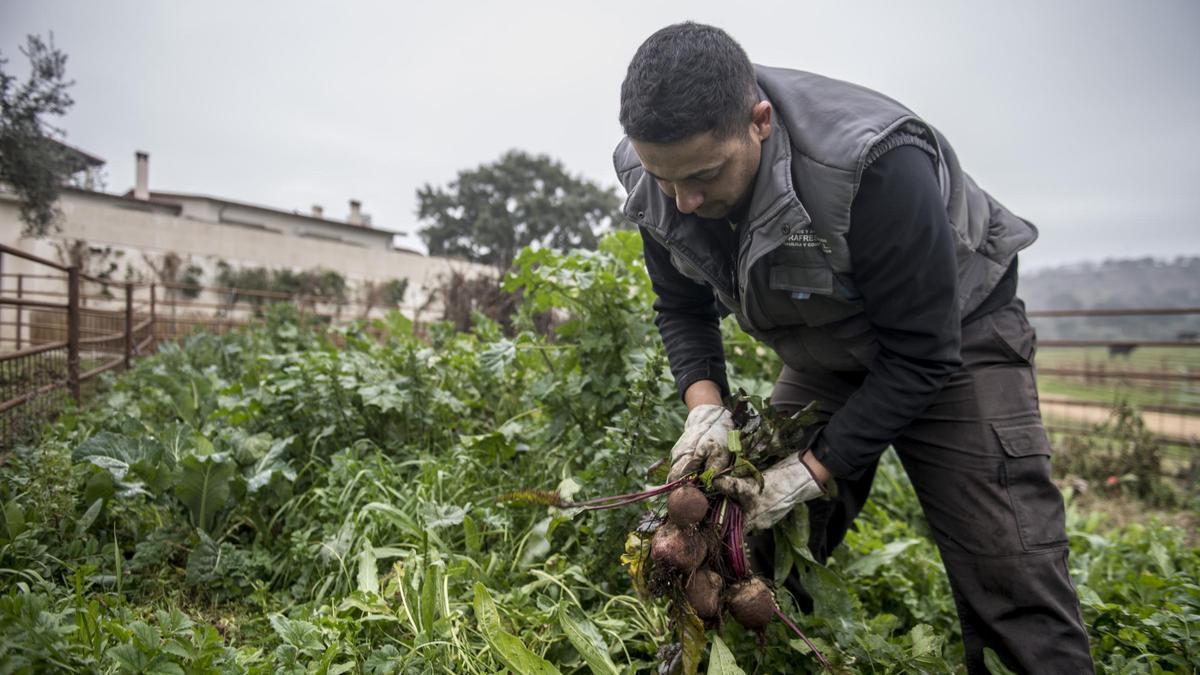 David, the orchard manager, harvesting. P.E.
David, the orchard manager, harvesting. P.E.And they do all this to perfection at Cigüeña Negra, which in addition to being a hotel and restaurant (for fifty guests), has its own cattle ranch with a unique breed of cattle in the world (a cross between Retinta and Wagyu cows, which they call Retwagyu) and an organic olive grove with its own olive oil mill where they produce the olive oil they use in the kitchen and which they also sell to the public. It also has several orchards, both winter and summer, and other facilities, such as a hammam, which add value to the services provided by the complex, where about fifteen people work (most of them in the restaurant and in the fields).
A reservation every 10 minutes
On a foggy morning in the middle of the Christmas holidays, the usual tranquility of the place is in the air, with hardly any visitors yet, despite the fact that reservations have not stopped growing since the day after the gala in which they were awarded the Michelin star. “It’s been crazy, especially the days after the award. We have received a lot of reservations through the web, which before there were hardly any through that channel. The first week after the star, a reservation came in every ten minutes, it was amazing”, says Alice Giraudeau, a French resident of Cilleros and another of the general managers of the complex.
Last December 28, several of the hotel’s twelve rooms were occupied, clients were coming to the Arab baths and more than twenty diners were waiting for them, and by mid-morning the dining room was ready (they have two areas with capacity for fifty people) and the kitchen was in full swing. From the beginning, a young chef from the area, Jorge Ramajo, has been in charge of the stove, in a hurry and with little desire for the spotlighthe recognizes that the award, which he himself received at the Michelin gala in Barcelona together with the other chef of the restaurant, Diego Carrero, caught them by surprise. “It is a recognition for all of us that we receive with open arms and we hope that it will serve to improve everything, both the day-to-day of our work and the satisfaction of our customers,” says the 25-year-old chef.
Country-flavored cuisine
The cuisine that both chefs carry out tastes of the countryside, of the meadow that can be seen in all its splendor from the large window of the kitchen or those in the restaurant with direct views of the centenary olive grove that expurgates a flock of sheep or the meadow where the smallest cattle graze, which will still take time to reach the plate. “Ours is a cuisine of product, of our own product, our meats and other zero kilometer ingredients, and with that we look for a good dish without giving it too much thought,” explains Ramajo.
Quality and simplicity are the main characteristics of this place whose star and differentiating product is the exclusive meats produced on the farm, mainly from the cows that graze a few meters from the restaurant and which are unique in the world. When Rosselló bought the 220 hectares of pasture and olive groves in this secluded spot in the Sierra de Gata, just 17 kilometers from Portugal, there was a very basic livestock herd. “It was an industrial crossbreed like the one found on most farms in Extremadura,” Payo recalls. A few years later, around 2010, the owner and his team began to invest in the renovation of that herd: “We introduced the Retinta cow, a breed native to Extremadura, and began to produce quality meat,” he adds. But that was not enough and they decided to innovate. They acquired in Germany the first Wagyu, a highly prized cattle breed of Japanese originand began to make a unique crossbreed in the world between the Retinta Extremadura cow and the Wagyu, which they have called Retwagyu. “Wagyu is very famous for its fat and the infiltrations it has, which are also its main problem because this causes it to lose meat mass, so with the crossbreeding with the Retinta we manage to gain that mass but keeping the famous marbling for which Wagyu is so appreciated in the world”, says Giraudeau.
And in addition to Retintas, two Wagyu sires and Retwagyu cows (which include only females over 36 months old that have calved), the herd also has angus cattle and Iberian pigs in the open range.
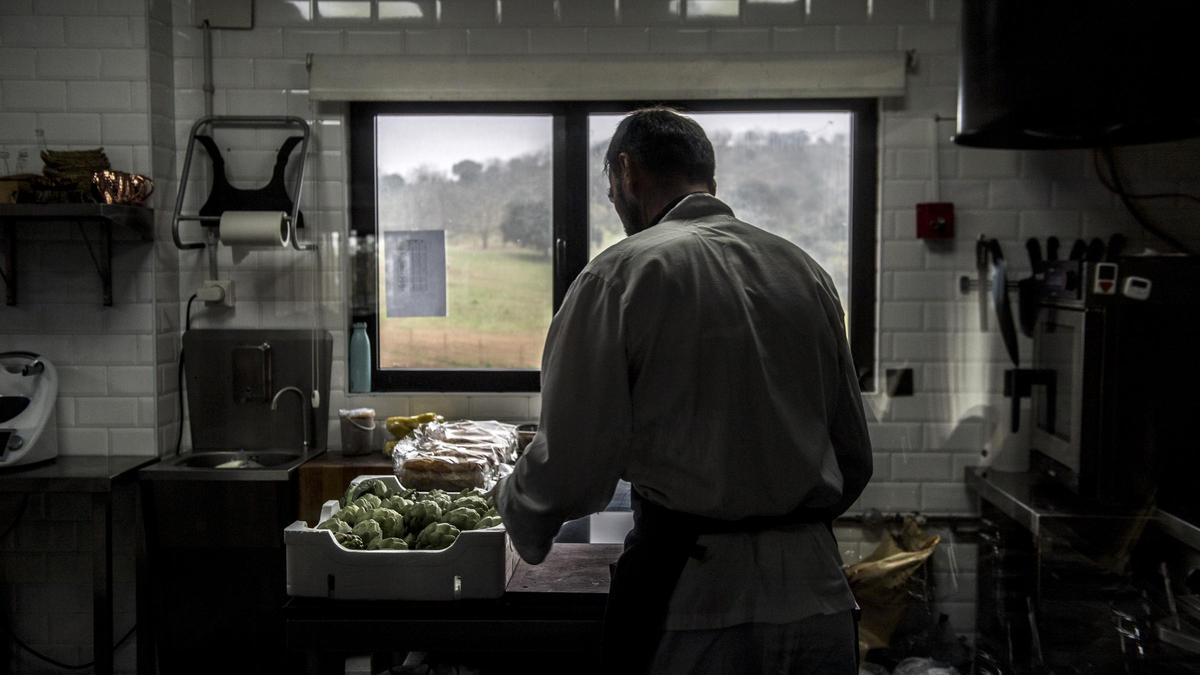
After spending their lives on the Sierra de Gata farm, the animals are slaughtered and butchered in Madrid and from there they travel to Ibiza, to the Roselló butchers, who in addition to direct sales in their own establishments (in Ibiza and Sant Antoni) are dedicated to distribution to restaurants and, of course, part of the meat, already portioned, returns to Madrid, where, in addition to its preparation in the kitchens of the butchers, it is then sent to the butchers of Roselló, of course, part of this meat, already portioned, returns to the Extremadura estate, where, in addition to its preparation in the kitchens, it can also be purchased in a small store selling local products in the complex, which already has the Michelin Green Star at its entrance.
The next step is in the kitchen. And here we are still looking for the same as in the countryside: quality, distinction and proximity. “50% of the ingredients used are produced on the farm itself and 90% in total are local, from the area“, underlines Giraudeau while showing the tanks of lobsters brought directly from Ibiza. “Obviously this is not a local product, but the origin and quality are also taken care of in detail. Sustainability is something we strive for every day and that encompasses not only the kitchen, but the entire Cigüeña Negra project,” the director stresses.
That is why the recognition in the Michelin Guide 2024 feel it for the whole of Cigüeña Negra. “We are on a farm that produces its own products: its meat, its oil and its vegetables, but sustainability is also in the concept of the whole building. In addition to the energy part, for which we use aerothermal energy and the central chimney to heat the water of the whole complex, the building is made with materials from the environment, with stones from the farm itself, with hardwoods and Arab tile, respecting the popular architecture of the environment. All this mix, with a careful decoration -with elements from Ibiza and Extremadura- makes it have a very high percentage of sustainability, which I believe has also been taken into account for the recognition”.
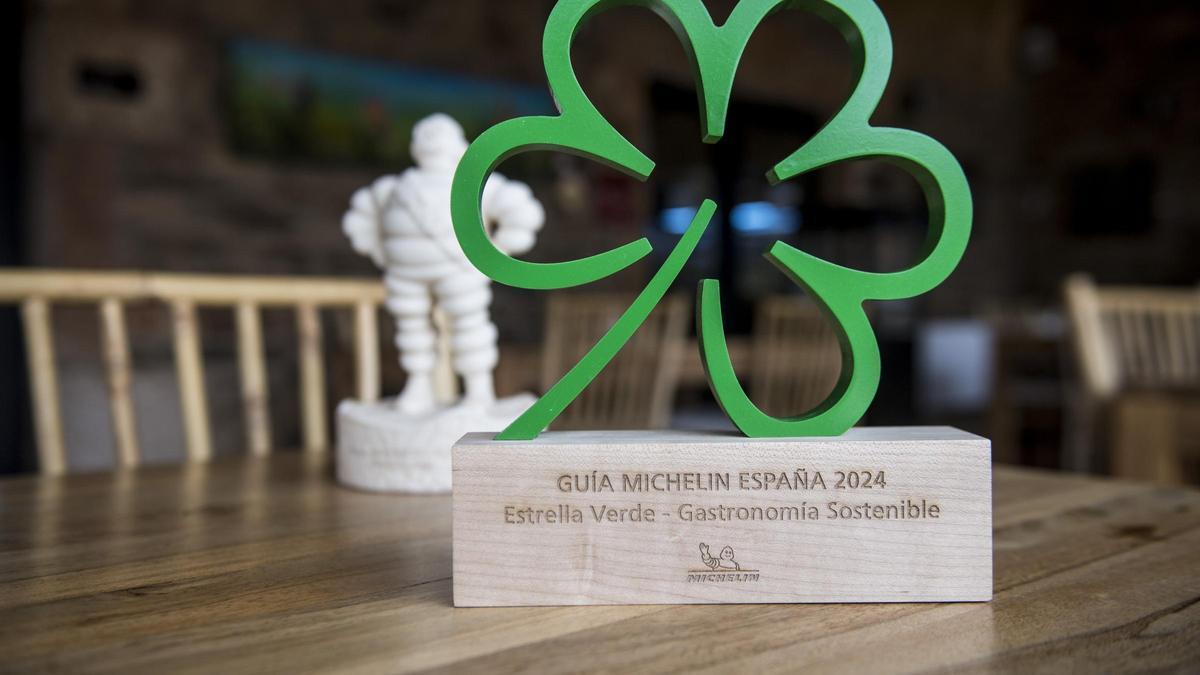
Both Payo and Giraudeau acknowledge that the initial project Rosselló put forward had little to do with what Black Stork Habitat is today. “His initial idea was to build a rural house, but the construction work was caught in the middle of the coronavirus, so he had a lot of time to think about the project and something that was going to be very small eventually became a bigger project that represents a different and innovative concept of tourism”. And which is already included in the 2024 Michelin Guide. “It is a huge joy for all of us to have this star, but we are also aware of the responsibility it entails and the expectation it arouses in customers and that requires us to continuously improve, which we face with enthusiasm and a lot of illusion,” says the director.
With average prices of 60 euros per person (drinks included) in the restaurant and between 150 and 250 in the hotel, so far 50% of its customers are from Madrid and the other half are from Extremadura, Portugal or visitors from other big cities looking to connect with nature. The challenge now is to continue betting on simplicity, quality and sustainability to satisfy more visitors and reach the international tourist to fill its facilities beyond the weekends and energize the Serragatine region without losing the essence of this remote place in which already shines a Michelin star green as the pasture from which it feeds.
For the full article, please visit Diario de Ibiza website here.

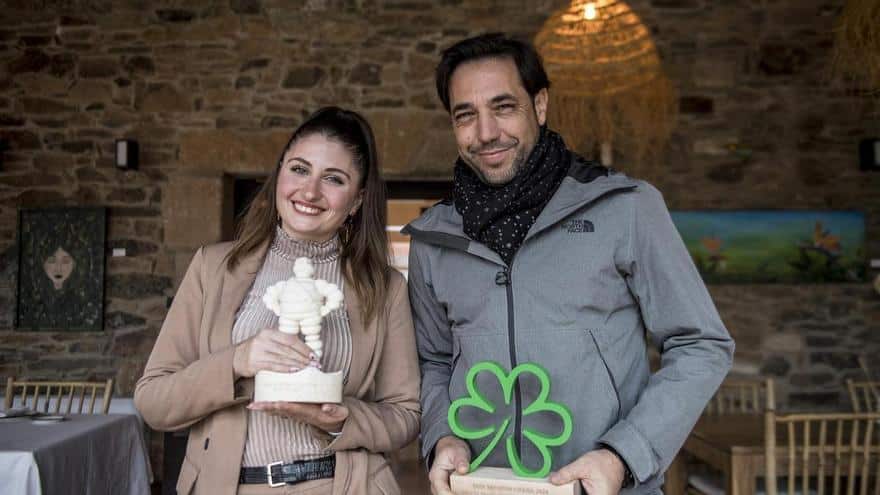
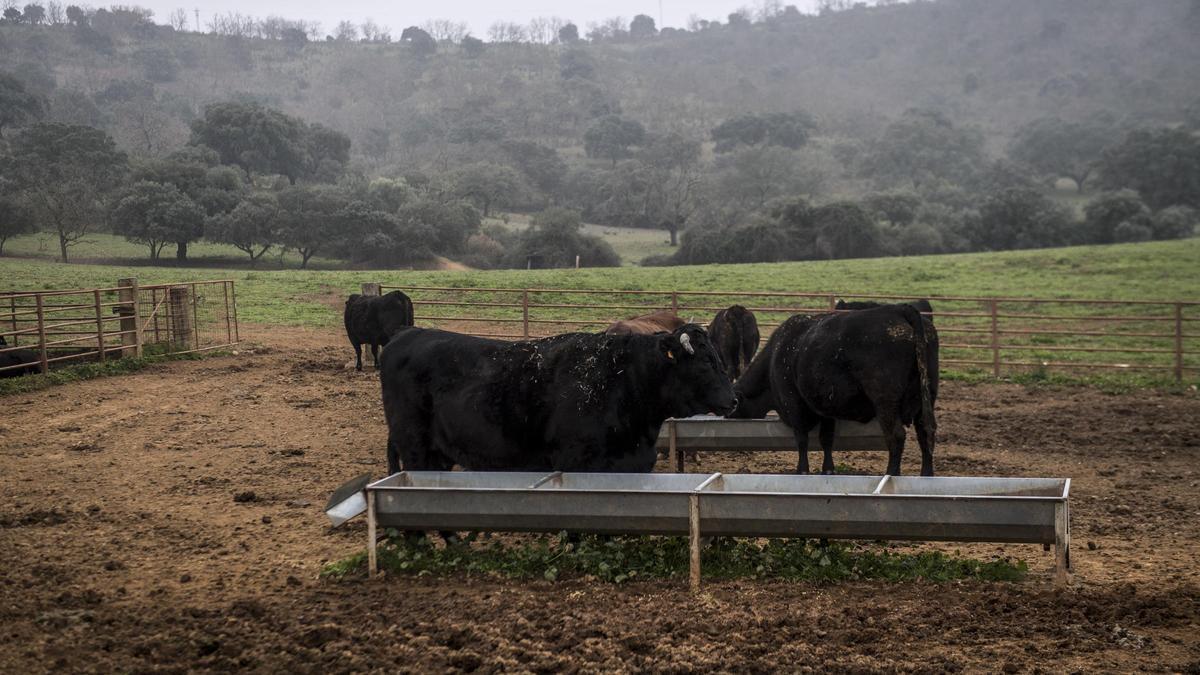 Retwagyu cows. P.E.
Retwagyu cows. P.E.